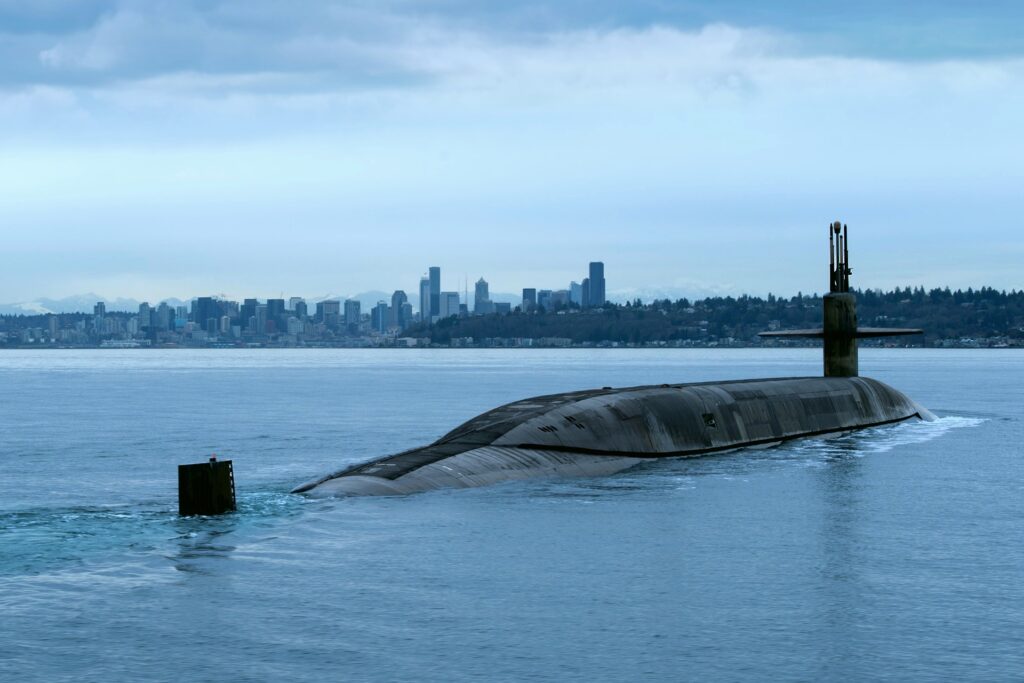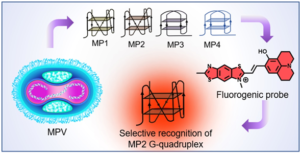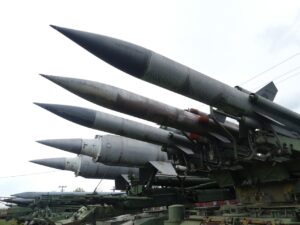
Washington/Beijing: Soon after the United States, the United Kingdom and Australia announced the optimal pathway for Australia to acquire conventionally armed, nuclear-powered submarines (SSNs) under the Australia, United Kingdom, and United States (AUKUS) partnership, China hit back calling the move as a typical Cold War mentality.
“It will only exacerbate the arms race, undermine the international nuclear non-proliferation regime and hurt regional peace and stability,” Chinese foreign ministry spokesperson Wang Wenbin said in Beijing today. He claimed that peace-loving countries have expressed grave concern and firm opposition to the announcement.
Earlier today (IST), US President Joe Biden, British Prime Minister Rishi Sunak, and Australian Prime Minister Anthony Albanese issued a joint statement in Washington DC announcing that Australia’s modernization of its submarine fleet will be a multi-decade undertaking binding the AUKUS countries closer together “as we actualize this opportunity side-by-side”.
They stated that Australia’s acquisition of conventionally armed, nuclear-powered submarines will be done in a manner that sets the “highest nonproliferation standard and strengthens the nuclear nonproliferation regime”. They claimed that this partnership was possible because of Australia’s longstanding and demonstrated commitment to nuclear nonproliferation.
However, Daniel J. Kritenbrink, US Assistant Secretary of State for East Asian and Pacific Affairs claimed that these were conventionally armed nuclear-propelled submarines. “Nuclear propulsion has nothing to do with nuclear weapons. And this programme will be operated safely, and again, the bottom line: it will contribute to peace, security, and prosperity across the region,” he said.
Explaining the move, Kritenbrink and Grant Schneider, Director, US National Security Council, said today’s announcement outlined how they will do this under AUKUS. “As AUKUS partners build the new SSN-AUKUS, we will leverage the best technology and ingenuity from the United States, Australia, and the UK to design a new class of submarine for Australia and the UK to use,” Kritenbrink said. He added: “We are coming together to assist Australia in modernizing its submarine fleet to use the same technology – nuclear-powered submarines – that other countries such as India, the PRC [China], France, the UK, Russia, as well as the United States already deploy in the region. As we do so, we are bolstering the economic opportunity of all three of our nations. We are deepening our longstanding, robust defence cooperation to bring our sailors, mariners, and engineers together to make this a reality and to build Australia’s stewardship of this powerful technology.”
China claimed that the latest joint statement issued by the three countries totally disregarded the concerns of the international community and went further down the wrong and dangerous path for their own geopolitical interests.
Registering China’s opposition to the statement, Wenbin claimed nuclear submarine cooperation between the US, the UK and Australia involves the transfer of large amounts of weapons-grade highly enriched uranium from nuclear weapon states to a non-nuclear weapon state, which poses a serious nuclear proliferation risk and violates the purpose and object of the NPT.
“The US, the UK and Australia said they are committed to set the highest nuclear non-proliferation standard, this is nothing but high-sounding rhetoric to deceive the world. In essence, it is a move to coerce the IAEA [Internationa Atomic Energy Agency] Secretariat into making safeguards exemption arrangements, which would seriously undermine the authority of the body. China is firmly opposed to this,” Wenbin said.
Washington said under all scenarios, Australia will receive complete, welded power units from the United States or the United Kingdom. This will include the fuel. Specific schedules for the reactors provided to Australia are still to be determined by partners in the future, but they will be provided by the United States or the United Kingdom and will be fueled with highly enriched uranium (HEU).
When asked if in the case of HEU, would Australia invoke paragraph 14 of its NPT safeguards agreement to exclude significant quantities of highly enriched uranium from naval nuclear fuel, Schneider confirmed that the Australian Government will look to negotiate an article 14 arrangement with the IAEA and that all three countries were committed to doing this in a way “that’s at the highest nonproliferation standard”.
China claimed that nuclear submarine cooperation bears on the integrity, efficacy and authority of the NPT. “The safeguards issues related to AUKUS concern the interests of all member states of the IAEA and should be jointly discussed and decided by all member states through a transparent, open and inclusive intergovernmental process,” Beijing demanded. It stated that pending the consensus reached by all IAEA member states, the US, the UK and Australia should not proceed with relevant cooperation, and the IAEA Secretariat should not have any consultation with the three countries on the “so-called” safeguards arrangements for their nuclear submarine cooperation.
While China stressed that the Asia-Pacific is the most dynamic and fastest-growing region in the world, the AUKUS too acknowledged that “much of the history of the 21st century will be written in the Indo-Pacific”.
China urged the three countries to “heed the call of the international community and regional countries, discard the outdated Cold War zero-sum mentality and narrow geopolitical mindset” that undermines regional and world peace and stability.. However, the AUKUS nations stated that they will help advance their shared vision of a “free and open Indo-Pacific region for generations to come”.
In the meantime, responding to the US National Security Adviser Jake Sullivan’s statement that the US would expect to have a call in the coming weeks between Biden and Chinese President Xi Jinping, the Chinese foreign office today said while China and the US maintain “necessary communication”, the US side “should show sincerity” and work with China to take concrete actions to help bring China-US relations back to the right track.
– global bihari bureau





